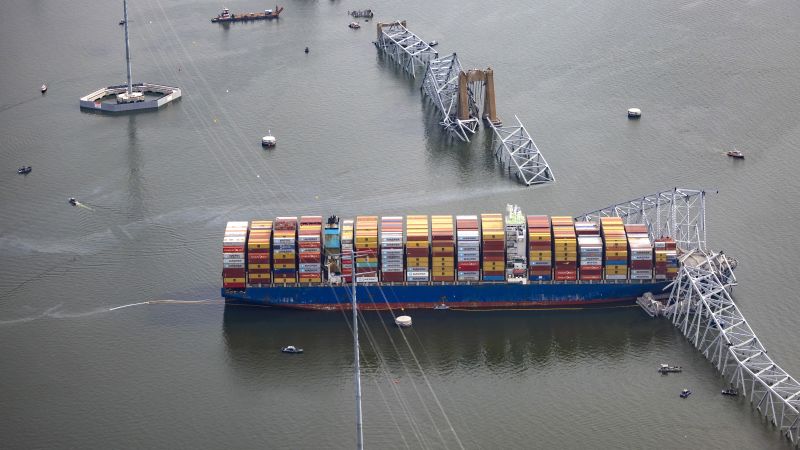The collision of a cargo ship with Baltimore’s Francis Scott Key Bridge is expected to result in billions of dollars in liability claims, with marine insurance companies bearing a significant portion of the costs. The complex nature of the incident, involving multiple owners and companies, as well as outdated maritime laws, will complicate the process of determining responsibility for the damages incurred.
The Dali ship, owned by Grace Ocean Private and insured by the Britannia Protection and Indemnity Club, is backed by around 80 reinsurers providing approximately $3 billion in coverage. While the financial impact of the incident is expected to be significant, the losses will be spread across many insurers, likely preventing bankruptcy for individual companies or a major increase in insurance prices.
The total cost of damages and rebuilding from the collision is yet to be determined, with estimates suggesting expenses exceeding $1 billion. The Insurance Information Institute spokesperson mentioned substantial costs for the bridge, liability suits, medical expenses, clean-up efforts, and more. The insurance payout resulting from the Costa Concordia incident in 2012 is used as a benchmark, with expectations that the current claim will rival its size.
The responsibilities in terms of maritime law fall on the ship owner, Grace Ocean Private, as opposed to Maersk, the charterer, which will not be liable for the damages. A statute dating back to 1851 could potentially limit the ship owner’s liability to the value of the vessel post-accident, offering a cap on their financial obligations. The likelihood of the bridge being reconstructed is high, with President Joe Biden pledging federal support for the rebuilding efforts.
Economic losses resulting from the bridge collision are challenging to recover from the ship’s owner in a maritime tort claim, based on historical Supreme Court decisions. While some businesses in the area may suffer business interruption losses, these may not be compensable from the ship’s owner. However, claims from individuals who lost family members or were injured are more likely to succeed and receive compensation.
Maryland lawmakers are working on an emergency bill to provide income replacement for Port of Baltimore workers impacted by the bridge collapse, recognizing the significant economic and stability losses. The challenges presented by the incident highlight the importance of marine insurance and the complex legal landscape surrounding maritime accidents. As investigations into the root causes of the collision continue, the full extent of the financial implications and long-term consequences remains to be seen.


